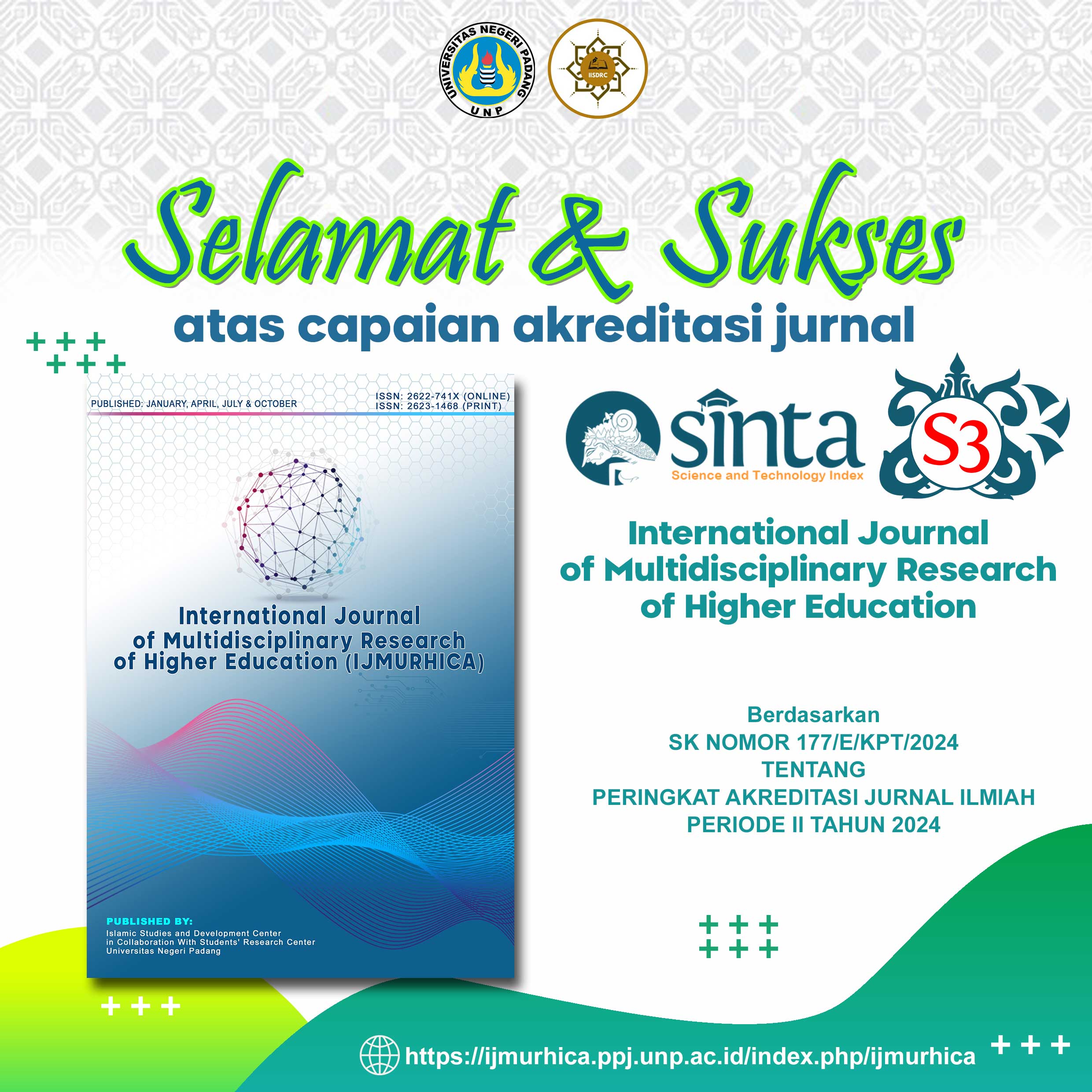Sociology of Communication Nazir Mosque Study of Uncertainty in Sermon Schedules and Social Isolation of Preachers
DOI:
https://doi.org/10.24036/ijmurhica.v8i4.421Keywords:
Sociology of communication, nazir, khatib, social isolation, ermonAbstract
Mosques serve not only as places of worship, but also as social and religious institutions with multidimensional roles. Mosque administrators hold strategic positions in maintaining communication between administrators, congregations, and other parties involved, including preachers who deliver messages during Friday sermons. This study aims to analyze the sociological dynamics of communication among the nazirs of Al Jihad Mosque in Medan, particularly regarding the unclear schedule of Friday sermons and the phenomenon of social isolation experienced by the khatibs. Ineffective communication between the nazirs and the khatibs has disrupted the delivery of sermons and weakened congregational participation. This study uses a qualitative approach with a case study method. Data were obtained through in-depth interviews and participatory observation. There were six informants consisting of mosque administrators, preachers who had served or were serving at the mosque, and mosque congregants. The results show that the weak communication system and management structure of the mosque trigger serious problems in the delivery of sermons and reinforce the social isolation of the khatib, as evident in the decline in the quality of sermons, the strained relationship between administrators and khatibs, and the decline in congregants' trust in the management.
Downloads
Downloads
Published
How to Cite
Issue
Section
License
Copyright (c) 2025 Novry Rivaldy, Abdullah Abdullah, Muniruddin Muniruddin

This work is licensed under a Creative Commons Attribution-ShareAlike 4.0 International License.






